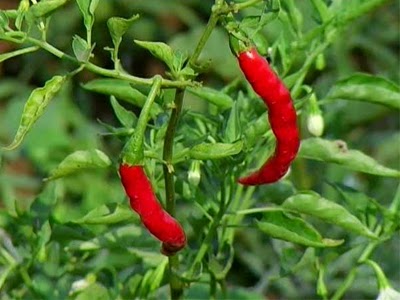Organic Agriculture: The Future Of Farming!
12/26/2014 11:48
Organic farming methods have been practiced in India since a long period of time, and hence there is a lot of experience with these methods in the local farming belts of the country. This farming system involves practices that are soil friendly. These practices are primarily aimed at keeping the soil alive and healthy by cultivation of land and farming using organic (animal/crop/farm/aquatic) wastes and other organic materials with beneficial microbes that act as biofertilizers. These biofertilizers release nutrients back to crops and result in agricultural sustainability. The macro aim of these practices is the creation of pollution free and eco-friendly environment.
According to Mahendra Trivedi, organic farming largely excludes the use of chemical or synthetic farming inputs like pesticides, fertilizers, and hormones to the highest possible extent. Instead, the practices stress on the use of more natural and organic techniques likes use of crop residues, crop rotation, animal manures, use of mineral grade rock additives and off-farm organic waste. Some practices also include biological system of plant protection and nutrient mobilization.
The soil health along with the enhancement of plant, animal and human well-being and sustenance of the planet are the primary goals of organic agriculture. Healthy soils produce good crops that nurture the animal health and promote human well-being.
Protection of soil fertility in the long term along with maintenance of organic matter in the soil through the encouragement of biological activity is a major purpose of organic agriculture. Organic farming promotes the use of soil microorganisms. These microorganisms convert nutrient sources that are relatively insoluble to directly absorbable crop nutrients. These practices also promote self-sufficiency of soil in nitrogen content by using legumes and natural nitrogen fixation (through microbes). Effective recycling of residues from crops and manure through livestock and other organic materials obtained through practices of animal husbandry is stressed upon. Through these practices, soil structure improves substantially, and the quantity of humus, beneficial microorganisms and earthworms in soil content also increases which eventually improves soil fertility
A very widespread organic farming practice is mulching that involves the application of natural or artificial layers of organic remains on the soil surface. It reduces the effect of splash erosion and reduces the rate of evaporation. These layers also increase the infiltration capability of the soil. Another benefit is weed suppression. Mulching eventually improves soil structure and conserves the soil moisture content which will decrease the irrigation needs of farms substantially.
For the control of weed and crop diseases along with pest control, organic agriculture relies on natural predators, crop rotation, crop diversity, pest resistant crop varieties and organic manuring. Restricted chemical or the thermal intervention is stressed upon.
The widespread livestock management including fulfillment of their nutritional needs and the preservation of wildlife and their natural habitats are some of the primary goals of organic agricultural practices.
There is a growing stress on the use of sustainable farming practices due to the increasing population. The effects of the green revolution are presently not enough to cope with the growing food demands across the Globe. Thus, the need right now is to create a balance between nature and agricultural practices to fulfill the demands of humankind and not cease the existence of human life or natural resources. The diminishing fossil fuel resources are an alarm to start practicing organic farming, to use and recycle resources in a sustainable manner through healthy agricultural practices.
Mahendra Trivedi conducted experiments on agricultural process on a variety of crops at two of the most reputed agricultural institutes in India: Banaras Hindu University, Varanasi, Uttar Pradesh, India and Dr. B.S. Konkan Krishi Vidyapeeth, Dapoli, Maharashtra, India. More details on the same can be obtained by visiting https://www.trivediscience.com/.

